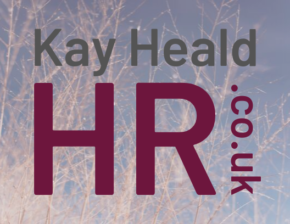Welcome to my first employment news update of 2017. Over the coming months, please be reassured that I’ll be interpreting and translating employment law changes and finding out what is most relevant to you and your business!
National Living Wage and National Minimum Wage Increases (April 2017)
The National Living Wage will increase to £7.50 per hour. The National Minimum Wage for 21-24 year olds will increase to £7.05 per hour; for 18 to 20 year olds to £5.60 an hour; for 16-17 year olds to £4.05 an hour and the apprenticeship rate will increase to £3.50 an hour
Kay’s comment: This second increase to the National Living Wage still falls below the independently calculated voluntary ‘Living Wage’ of £8.45 per hour for workers over 18 years old, set by the Living Wage Foundation each year.
Statutory Rates Increase (April 2017)
Statutory Sick Pay will increase from £88.45 per week to £89.35 and Statutory Maternity, Paternity, Adoption and Shared Parental Pay will increase from £139.58 per week to £140.98.
Salary Sacrifice Schemes (April 2017)
Salary sacrifice schemes will be subject to the same tax as cash income (but pensions, childcare, ultra-low emission cars and cycle-to-work schemes will be exempt). Mobile phones, health checks, gym memberships, school fees, accommodation and white goods will no longer be eligible.
Kay’s comment: Current arrangements will be protected until April 2018, while arrangements for cars, accommodation and school fees will be protected until April 2021. Also, other untaxed benefits, such as where salary is exchanged for extra annual leave or flexible working hours, will not be affected.
Apprenticeship Levy (April/May 2017)
This will only apply to larger employers with pay bills in excess of £3 million, but other reforms will include the introduction of a new digital apprenticeship service, available to non-levy paying employers from 2018.
Kay’s comment: The government will also be moving towards a co-investment model to fund future apprenticeships meaning employers will have to pay a 10% contribution to their training costs. However, employers who have less than 50 employees, who train 16-18 year old apprentices, will be exempt. Further Information is available via the Apprenticeship Employer Helpline: 0800 150 600
Modern Slavery Act
The UK Modern Slavery Act was brought in last year to tackle modern slavery and human trafficking by making larger businesses more accountable for the practices of their suppliers. The Act directly applies to businesses with a turnover of £36 million or more, requiring them to make an annual statement setting out what they have done to tackle any slave and child labour in their supply chains. However, the rules are meant to have a cascading effect on smaller businesses, to encourage auditing and transparency.
Kay’s comment: Small businesses will be required to co-operate with the requirements of their larger clients and many are being asked to document and evidence what they do to prevent modern slavery and forced labour occurring within their part of the supply chain. For more information please read: SMEs and the Modern Slavery Act . If you need help devising a suitable strategy and formulating a tailored Modern Slavery Policy, please email me: kay@kayhealdhr.co.uk.


